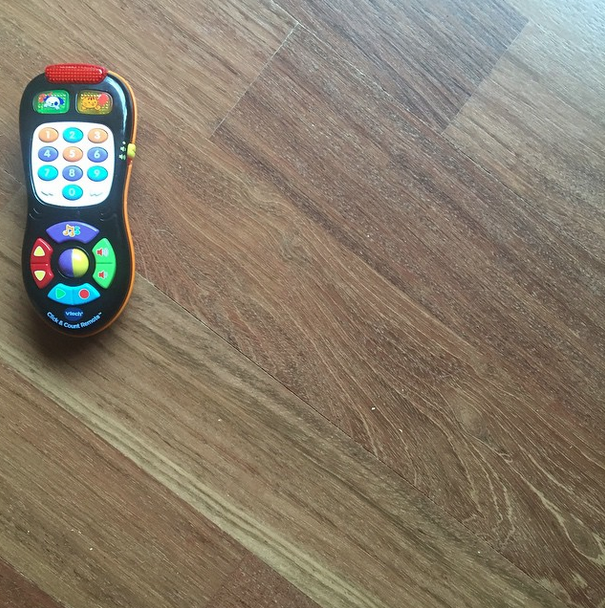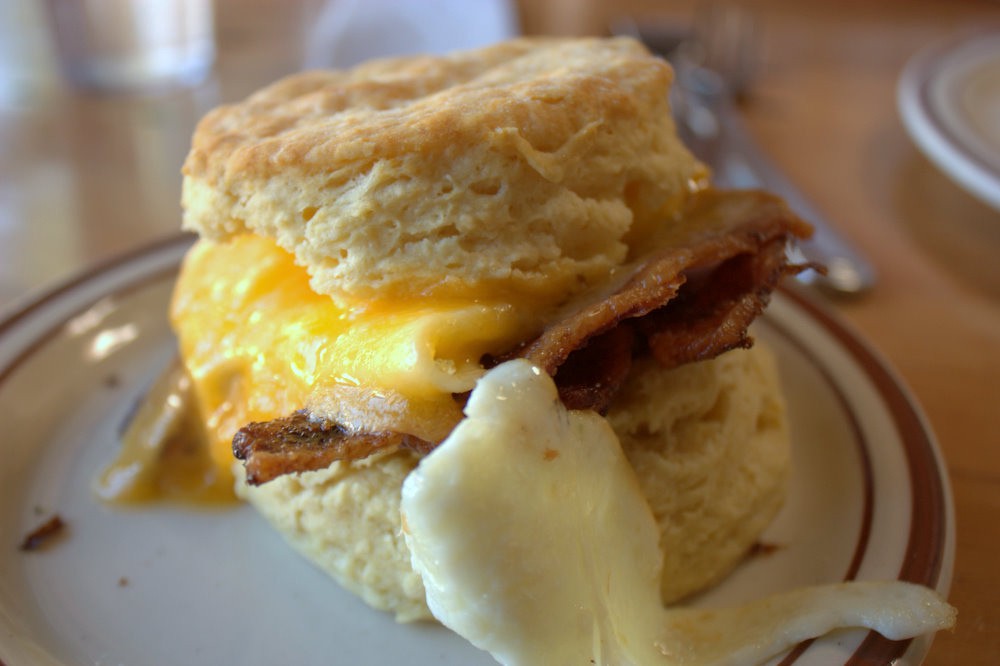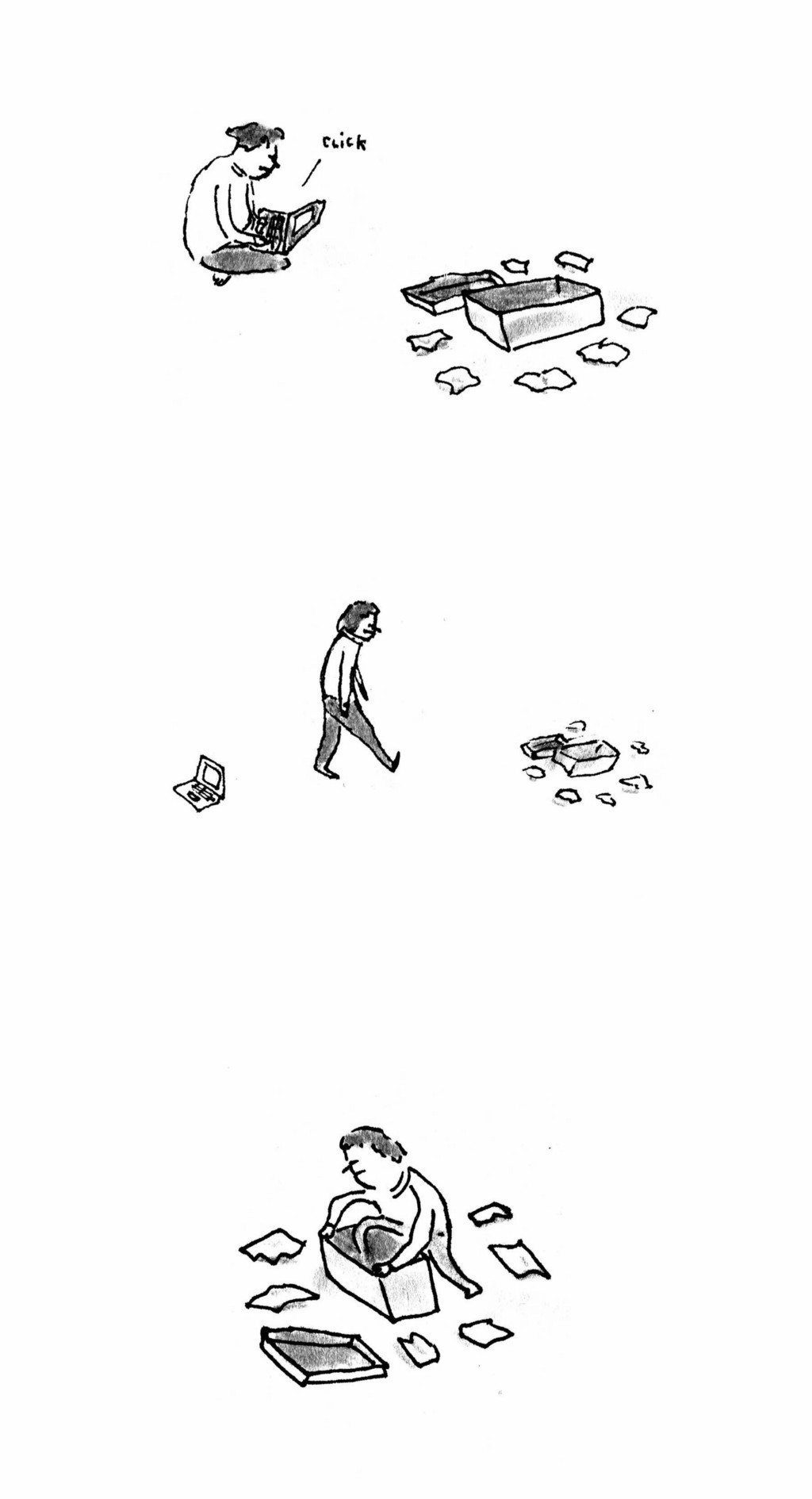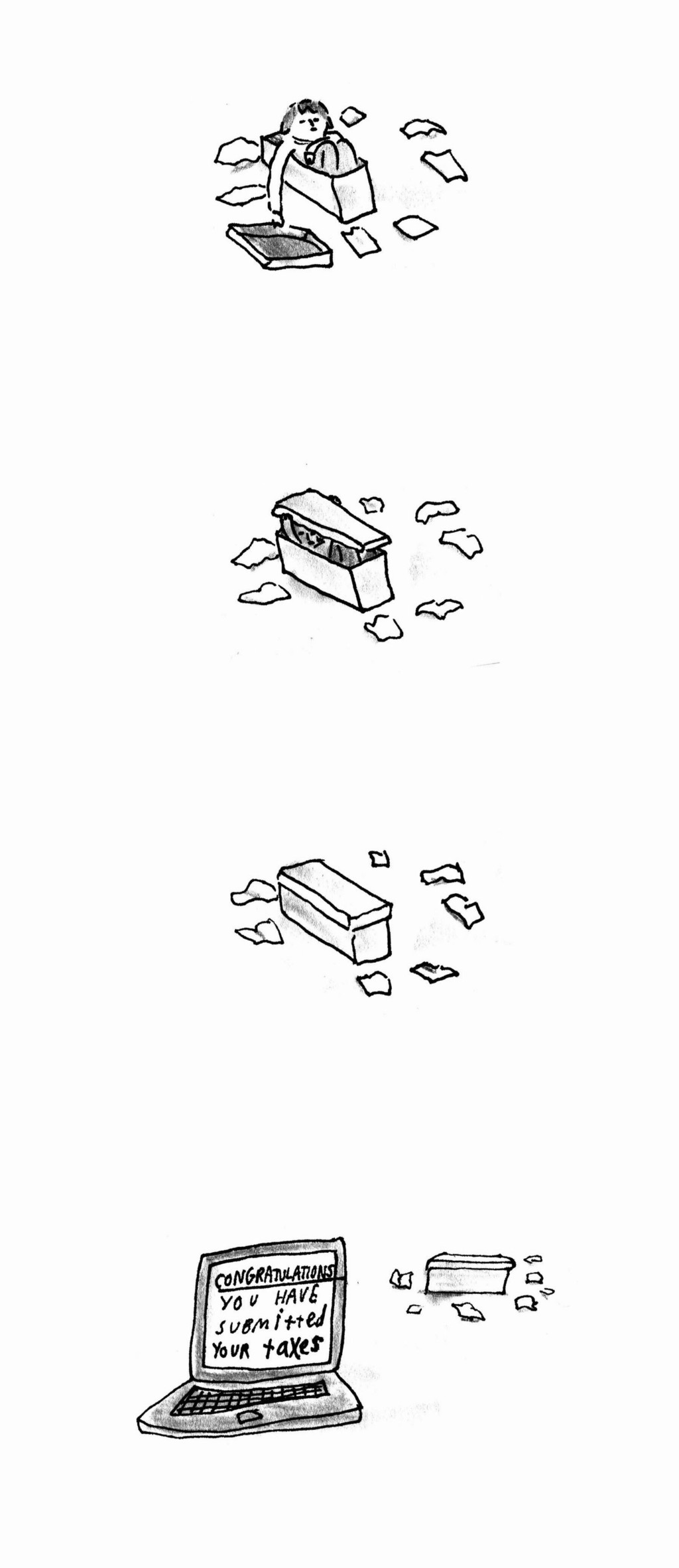Valet, "Nature"
A full-spectrum pleasure pill of a song, equally effective when walking down the street or, perhaps, oozing and bed-bound with seasonal allergies.
New York City, April 14, 2015

★★ Above the northwestern horizon were tight, bright stripes, growing duller and looser on their way up till overhead was lumpy solid cloud cover. That was all the light the day would deliver; the rain had moved off, as forecast, but the sun never moved in. The unbudging darkness made the mildness impossible to fully believe in, or to relax into.
Read an Excerpt of Hermione Eyre's 'Viper Wine'
by Awl Sponsors

Presented by Penguin Random House. Purchase Viper Wine here.

— —
Venetia stayed late abed that morning.
This was uncharacteristic, but she found she could not rise.
Perhaps she was still angry about the spoiling of the apples. Mistress Elizabeth had not directed the farmhands to it and three barrels at least had been left to mulch. She shouted at her, and then she went to her room and cried. For what? For mouldered apples?
Yesterday she was in her knot garden at the front of the house, clipping the box-hedges using her dainty silver shears — play-gardening, as Kenelm called it — when a youth in the livery of the Earl of Dorset arrived. She put down her basket and smiled her famous smile at the livery boy, the smile Ben Jonson had written a sonnet about, and Peter Oliver painted; the smile that was so much in demand that a royal writ was put out to send any unlicensed copyist to prison, and still copies came. She stood there, her hip askew, so confident, the breeze in her flowing hair, her loose country dress full and soft. “Madam,” said the boy, bowing like a silly sapling, then looking her full in the face. “Could you tell me where to find her most gracious beauty Venetia, Lady Digby?”
He was holding a tall fair lily — a gallant reference, she supposed, to the single fleur-de-lis on Kenelm’s coat of arms — and aflame with nerves and excitement, he glanced back and forth at the house, as if he thought the great dame herself might at any moment appear in a cloud of golden light.
Venetia laughed it off and said, “Why, that lady is before you.” And as the youth looked at her with disbelief, and as his face turned from disappointment to, yes, repulsion, she remembered, as she had to keep remembering, that she was no longer herself. Her teeth were going, though they were always so good, and she had not yet learned to smile without showing them. She saw, in the mirror of his face, as the young boy’s pupils shrank, how much she had changed. And still he did not present her with the lily. Did he think she was a presuming and ironical chambermaid, testing him?
Edward Sackville must have talked up her beauty to his livery boy. It was his way. Since he became an earl his talk carried more weight. The boy had been expecting a treat: to see the woman with the smallest waist in London. Once that had been almost true. Now . . . “Have you no mouth to keep your tongue in, or do you stand there like a dimmock?” she snapped. As she heard herself speak, she felt ashamed. This is what it is, she realised, to become bitter, to spit out rude gall because your bones are
turned to brittleness. She turned and took off her embroidered gardening gloves, while her rage subdued, and then she reached out and took the boy’s hand, as if it belonged to her.
“Forgive me,” she said, leading him inside the house to her drawing room, intending, by allowing him into her feminine bower, and by spending a short time asking him questions about his life and opinions, to make him adore her for ever. But after their spiced cup arrived, and she had poured it, she went upstairs to fetch her fan, and while she was looking for the fan, she found an old keepsake from Sir Kenelm, and soon she became unaccountably sleepy. It was already dark when she awoke, remembering
the boy downstairs, who had vanished, leaving that long, drooping lily beside her cold cup of spiced wine.
Venetia was surprised at herself. She knew she was voluble and impatient, and many men found her too bold — except Sir Kenelm, who loved her strength — but she was not usually careless enough to abandon a young boy so thoughtlessly. But sometimes carelessness is a way of getting out of what we cannot do. She had always thrived on company. Now she was beginning to conceive a dread of daylight.
No wonder she went out veiled these days. It was a necessary precaution. She wiggled her toes in the cambric bed-sheet, to check she was still alive. “The rising sun / Which once I saw / Is now high in the heaven.” She often made up madrigals about nothing at all, just to make her thoughts musical. She really ought to rise. Chater must have led matins without her. She would tell him she had been at private prayer.
What was it Dr. Donne preached, which had so affected her? They went to so many funerals she could not remember whose it was where Donne had looked so thin and shrunken standing in the pulpit, his voice so slow that as he began a new sentence, one feared he might not live to finish it. And yet the light and dark began to mingle in his speaking, and promise answered question, so that questions died away, and on the flow of his speech he carried them, speaking so kindly, so privately to the very heart of each of them, until all were moved to glad wet tears, and the inverse of the doctor’s face, black-skulled, with bone-white burning holes for eyes, remained imprinted on her mind’s eye even now.
Her pillow book was buried in the covers beside her, and she turned to the page where she had copied down that delicious passage: “That which we call life is but Hebdomada Mortium, a week of death, seven days, seven periods of our life spent in dying, dying seven times over. Our birth dies in infancy, and our infancy dies in youth, and so forth, until age dies and determines all.”
Ripeness, she thought, is but the first sign of rot; there is no rest to be had anywhere on this planet. Since it turns, and turns, how can we ever be still? Sir Kenelm had the blame for that. He was the first to tell her that the earth was a hazelnut tossed in the air.
She could feel a new coarsening in her hair, which Kenelm had always stroked and made her laugh by telling her that the Greeks said a soft-haired creature was a soft-hearted one. Throwing back her blankets, like pulling off a plaister, Venetia considered her famous feet, once described by one of James I’s Scots poets as “wingèd dreams, each toe a wish,” splayed out fat and graceless on the counterpane. In private she sometimes made horrid faces in the glass, and wobbled her puckered thighs, deliberately tormenting herself. This morning she could not be bothered even to do that.
Ageing is imperceptible. It happens as gradually as a stone staircase wears, or a fan kept in sunlight fades. But to Venetia it had happened slowly and then suddenly, like a huge stock of water drains for a long time, hardly depleted, till the last swills vanish quickly.
I can bear it, she thought, because my husband bears it. He sees beyond the skin. He has deeper vision than most men. Why else would he love me, spoiled as I am? Each day we remain here together, before we go to town, we become more like a family, and he and I grow close again. We kiss each other every night; we wake together every morning. To my love, my husband, I am like a tree he sits beneath; he does not perceive my leaves a-turning.
Every day, the lowing cows in the valley told her it was almost noon, and every day their lowing seemed to come round faster. She rang for Mistress Elizabeth, and set about the business of dressing, unfastening and fastening, and refreshing her curls, thinking of her boys and her husband and preparing her face for the day’s duties of smiling, as Elizabeth tied her stays and fixed her overskirts, and once apparelled in all the fine and starchy fabrics of her station, Venetia felt more like herself. But as the cows bellowed across the far fields, she caught a view of herself in the glass, and screamed a silent scream.
Presented by Penguin Random House. Purchase Viper Wine here.
The Toys You Won't Buy
The Toys You Won’t Buy

I don’t have a lot of “rules” at home for the baby. I put Zelda to bed consistently, I’m strict about her eating, and I keep her away from iPhones. Other than that, it is mostly a free-for-all around here. Still, even before I had a baby, I had THOUGHTS on the insane baby toys which are really popular these days: you know, the ones that fit the whole baby inside of them, with crazy lights and sounds and glitter? “They’re huge, they’re loud, they’re ugly. They probably overstimulate the baby’s senses and make it crazy!” I told myself. That philosophy crumbled relatively quickly in the face of gift-laden visitors and a need to search out everything I could imagine that my baby would want or need. And so, while your baby will happily play with a cardboard box for hours at a time, you (like me) will probably spend a lot of time (and money) shopping for toys — to entertain, to distract, to “stimulate,” and to educate your new roommate.
The absolute worst toys for babies and children are the ones that “talk.” The musical toys — the wind-ups, the crankables, the white noisemakers — can get annoying at times. You pass through the several, predictable phases of the lifetime of a musical toy: Phase one: “Huh, it’s only got three songs and they’re each only ten seconds long? Weird!” Phase Two: “Please let the batteries die.” Phase Three is when you realize you’ve written lyrics for the instrumentals, and that you’re singing the songs in your kitchen to yourself three hours after the baby has gone to bed. “It’s got a pretty sophisticated melody, really” you tell your spouse. Phase Four completes the cycle: the toy simply disappears one day. No one will take responsibility for its passing. It has simply ceased to be. I sometimes still regret leaving my daughter’s Fisher Price “My Little Snuggabunny” bouncer on the curb one day, free for the taking. Not because my daughter ever really liked it — she didn’t, and wouldn’t sit in it for more than four minutes at a time — but because I sometimes want to hear its shitty rendition of “Frère Jacques.” I’m not sure I’ll ever get rid of the Fisher Price “Go Wild” Jumperoo, a real shitworld product that failed to ever consistently entertain my daughter for long enough to allow me to pee but it does play some actual jams that are good songs, empirically. I even recorded one of them and sent it to my musician brother-in-law, noting that I thought it sounded like a cross between his band and Vampire Weekend. Who wrote these songs? A person? A bot? If they’re good songs — which is incredibly rare — does that make it better, or worse?
But nothing is so terrifically bad as toys which aren’t so much about sheer noise as they are a message. As babies age beyond six months, suddenly, everything talks. The first thing we acquired that “talked” was given to us by a lovely member of our family who will remain anonymous. We took it with us on a car trip when we realized our daughter was drawn to its bright red, blobby shape. She figured out instantly how to make it talk — by poking its belly. Here is its most famous, imploring bit of dialogue, delivered in the most maniacal voice you can imagine: “HELLO, tiny baby, please play with me / we’ll sing and learn and laugh, tee hee!” She pushed on the toy’s belly, over and over, and it kept delivering the goods. It has the most compressed audio I’ve ever heard in my life. The quality of the recording is so bad. Zelda loved this thing for months and then suddenly, one day, she started gasping at it in horror when I picked it up to show to her, scrunching up her little nose in her “mad face.” The day after that, she picked it up, put it in the hallway outside her bedroom, and slammed the door on it. It’s lived in exile on the top shelf of her closet ever since.
A lot of talking baby toys are similarly demanding: “Hello, tiny baby, please play with me” is at least polite. Many others I’ve encountered are not so well-mannered. The VTech Move and Crawl Ball demands, over and over, “Push me!” and the Fisher Price Laugh & Learn to Play Puppy cries, “Hug me!” randomly in the dark, Chuckie-esque and with a pedophile’s voice, completely unprompted. My friend Lisa — whose daughter Mae was also gifted this terrifying cur — said, “He’s going to go up the river one of these days.” There’s the talking chair whose words are so stupid I feel only sympathy for it: “Froggy goes splish, froggy goes splash! Splish, splash! Splish, splash!” Does a froggy even go splish? What are you talking about?
Of course, Zelda loves many of the most annoying toys, which is sort of an inescapable truth of parenting: No matter how badly you want to avoid bringing cheap, hideous, plastic garbage into your house, it will arrive, unbidden, sent by well-meaning relatives or friends, left there by other, evil babies and parent friends, desperate to lessen their familial load by one piece of crap. Then, once it’s there, you realize that it’s possible, after all, that you’ve been denying your dear little thing an experience that she actually wants very badly! You’ve been, it seems, almost abusing her by withholding these very loud, extremely gaudy, ugly ass toys. So out of guilt, you buy more.
My first talking toy purchase was the VTech — which has the market cornered on horrifying baby toys — Baby’s Learning Laptop, bought as a decoy to try to trick my daughter. It looks almost nothing like a laptop, however, so I don’t know how it could have ever done the job I wanted it to do. It didn’t, but it did bring this into my life: “My first laptop is SO FUN, it’s made just for me-eee / Learning all about my home, come along and see!” Every time the thing is touched, opened, or looked at, this “song” kicks on. A lot of these toys have a weird narrative thing going on that I can’t quite grasp, but find extremely unsettling: What is the point of describing what the toy is? The “My First Laptop” song is written… from the perspective of the baby? The words and songs are always dumbed down so far that it sounds like maybe a dog actually wrote them using a translation engine from 1999.
By far the absolute worst purchase I have ever made as a parent, one which I regret daily, is a very recent one, what I like to call a “desperate Amazon one-click” buy of the VTech Click & Count Remote. I bought this, according to my purchase history, on February 28th of this year, when my daughter became relentless in her need to possess one of our many remote controls. Thinking this toy version might appease her was misguided of course — I knew that from experience. But to the house it came, two days later. She didn’t think for a moment that it was an actual remote control. I remember her dropping it casually into her bin of other toys, as if saying to me, “This goes in here. The remotes, they belong on the shelf up there.” But really, nothing could prepare anyone for how bad the remote’s “Hi, I’m turned on” warning shot is: “Gather round, to pretend, it’s time to enjoy TV shows with some friends!” It barks, in a voice which is neither male nor female, adult or child. “1, 2, 3, 4, 5 so many fun channels to watch live!” it continues, “6, 7, 8, 9 so many to watch, so little time!” Even ignoring the fact that most TV channels are NOT live, the message this thing delivers is SUPER bad! So much TV to watch, so little time! I wouldn’t be surprised to hear the thing blurt out, “Ahhhh fuck dude Pulp Fiction is on!”
Every so often I purge all of the noise-making toys from my daughter’s life: turning them off one by one, depositing them on the top shelf of her closet. I know that, if they’re not exactly damaging her in some way, they’re annoying to me, so I tell myself that it’s for her own good. But then slowly, out of my exasperation or her boredom, they all come back, one at a time, over the course of a few weeks. You see, these toys are annoying, and that is their secret: at the end of a long day, nothing will hold a fourteen-month-old baby’s attention that isn’t complete sensory assault. One by one, the toys make their way back out of the closet, seeping into the inoffensive collection of blocks and building supplies and mute dolls. Out comes the ugly, annoying, useless “remote” which controls nothing, except her attention.
Is Tony Soprano Alive?
Because nothing is ever truly over on the Internet we are once again talking about whether or not Tony Soprano died. Let’s just settle this once and for all: Tony Soprano is a fictional character. He was never alive. Now go do something useful with your lives. Thank you.
The Correct Bacon, Egg, and Cheese Sandwich

For all of the discussion about bacon, egg, and cheese sandwiches over the last two days — whether New Yorkers have a unique connection to them (no) and whether fancy or regular ones are better (context is everything) — oddly no one has bothered to dissect about what actually makes a good BEC. So here:
• The bacon can be savory or slightly sweet (“maple-glazed” or whatever) or cheap or fancy, but it must be smoky and salty and taste of pig, and most importantly, it should be crisp enough that it cleanly shatters and separates with a bite of moderate force (if you accidentally pull a full slab of bacon out when you bite into the sandwich because it is too chewy or too fatty, it is bad)
• The eggs, if scrambled, should be moist and fluffy and slightly salty and pleasantly eggy; if fried or over easy, the yolk should be goopy and silky and buttery, the whites tender (if the eggs taste too eggy, or wan, or overcooked, or rubbery, or they have any semblance of chew, it is bad)
• The cheese should be orange (American, but cheddar works, particularly on fancy BECs), sharp enough to both cut against the bacon and punch up the eggs, with a melty texture that is precisely between a solid and liquid (if it is so soupy that it sinks completely into and through the eggs, or so solid that you can you clearly discern the edges of the cheese slice and it does not have any elasticity when you pull away from the sandwich, or worst of all, tastes like nothing, it is bad)
• The species of bread is the one largely negotiable characteristic of a quality BEC, but a roll should have a slight chew to the outer edges, with a soft interior that pulls away easily when chewed and it should be delicious enough that you would eat it with only butter; a biscuit should be buttery and moist and slightly crumbly, but not so crumbly that it practically dissolves when you are less than halfway done eating the sandwich; a croissant should be flaky and tender and buttery; and a bagel (plain or everything) should have slightly more chew than a roll (but again, not so much that you cannot bite through it with ease), and (also, again) be edible with plain cream cheese. Crucially, the BEC innards should touch every edge of the bread, with overhang protruding from at least one end. (If your incisors cannot clean separate a bite from the rest of the sandwich, or the bread wholly swallows the guts of the BEC, or the integrity of the bread is such that the sandwich collapses in your hands, or the bread is not good enough to eat practically naked, it is bad.)
• The resulting sandwich, which should be delivered on a plate or wrapped in foil, and feel pleasingly dense in your hands, should be greater than the sum of these fine parts
N.b. If the BEC arrives on an English muffin or contains turkey bacon, any kind of pork except ham, plant matter, or condiments of any kind, get it the fuck outta here!!!!! A BEC on regular toast should not necessarily be thrown in the garbage, but it will always be inherently inferior.
Photo by krista
New York City, April 13, 2015

★★★★★ Commuters heading out for work were willing to change just a suit, trusting the chill to pass. One very confident man was striding uphill with a long stretch of ankle bared between high cuffs and loafers. Lone dandelions — one at most per planting bed — wavered in the breeze. A recycling truck hoisted and tipped out a dumpster full of cardboard, and the driver waved through the open window as the three-year-old watched. The light was finding the buildings on the Jersey bank but couldn’t help them much. In the afternoon, an aluminum stepladder stood in the bottom tier of the fountain, and trembling lines of light on the wall behind it announced the water gradually filling in. A high school ballplayer waited in full grays at a crosswalk. In a nook behind a scaffold, one tree had put out leaves. The sky was so blue that a blue-brick wall looked gray.
Beautifully Decrepit Future Relics of the Physical Economy, Ranked

11. Big box stores
10. Malls
9. Theme parks
8. Suburban office buildings
7. Urban office buildings
6. ATMs
5. Parking lots
4. Grocery stores
3. Schools
2. Gas stations
1. Movie theaters


